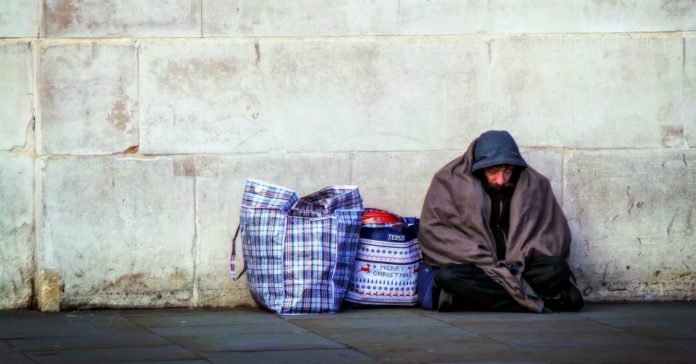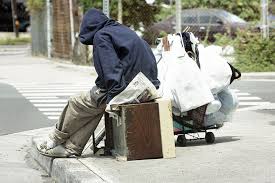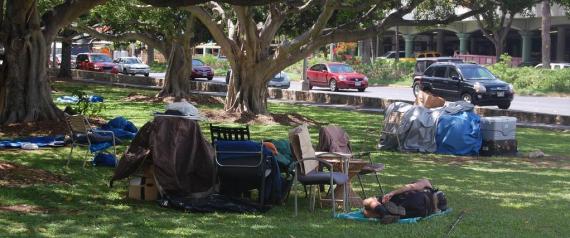
A nondescript homeless shelter in Honolulu has thrown the rules out when it comes to housing some of the 1,900 homeless people in the state. Next Step houses scores of people on a weekly basis. Run by Waikiki Health, rarely with a vacancy, the 174 cubicles are in high demand. [1][2][3]
“We sometimes have 10, 15 people outside wanting to get in,” said Richard Kaai, Next Step’s shelter services supervisor. “We have to turn them away because we don’t have any room.”
It’s a situation gaining attention. Since March 2014, vacancy rates across the island have been operating below capacity with one shelter, the Lighthouse Outreach Center operating at a 63 percent vacancy rate, while the Waianae shelter for homeless veterans is at 24 percent. But, at Next Step, the vacancy rate hasn’t reached more than 5 percent.
But Kaai says Next Step’s attraction is the acceptance of the person’s problems that come into the shelter.
“The number one thing is that we bring in anyone who’s willing to come in and treat them with compassion,” Kaai said. “We meet them where they are at. When they come here, they have a lot of issues, and we try to accommodate whatever their issues are.” The Next Step focuses on the person more than the rigors of rules normally set by other shelters. [4]
For decades, the accepted model of operating shelters has been to focus on making homeless people “housing ready.” Strict rules for sustaining sobriety and compliance with mental health treatment is enforced. If the rules are violated, it isn’t uncommon for the person to be pushed back onto the streets.
Next Step is helping to pave the way for a “Housing First” policy, which can then lead to tackling the other issues of drug dependency and mental health issues via a supportive housing environment and case managers.
However, the program director of the Lighthouse Outreach Center is skeptical of the program, saying that this approach will become a revolving door. “A part of the purposes of shelters is to help people develop behaviors that would enable them to move into and remain in permanent housing. And following the rules is part of the deal,” he said.
Other cities have taken a similar approach as Next Step’s open policy, with similar successful results. The Downtown Emergency Service Center in Seattle, which allows drinking on the premises, has reported an average reduction in their residents drinking from 20 drinks per day to 12 within two years. [5]Less trips to the emergency room, and to jail, have also been reported. New York, Chicago have also opened similar styled shelters known now as “wet houses.”
The hope, by running these ‘policy open’ houses, is to bring the resident closer to the help they need.
[1] Retrieved from [Next Step Shelter Information Page] http://waikikihc.org/locations/nextstep/
[2] Retrieved from [Waikiki Health Website]. http://waikikihc.org/how-to-help/donate-in-kind/next-step-shelter/
[3] Retrieved from http://www.chaminade.edu/service-learning/next-step-homeless-shelter
[4] Kaneya, R. (June 2015). How Ditching The Rulebook Helped This Homeless Shelter Get People Off The Street. Retrieved from http://www.huffingtonpost.com/2015/06/09/hawaii-next-step-homeless-shelter_n_7489214.html?ncid=fcbklnkushpmg00000010
[5] Retrieved from [DESC webpage]. http://www.desc.org/






